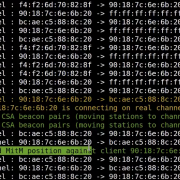Sideloading Apps – the perfect entry point for vicious malware
 You might hear about the dangerous leaks and mobile attacks that make the news. But your organization might just be vulnerable to other threats right now.
You might hear about the dangerous leaks and mobile attacks that make the news. But your organization might just be vulnerable to other threats right now.
The practice of sideloading apps has become an overwhelming trend in the mobile device arena. Android users, in particular, are consistently using third party app stores and websites to download the latest apps to their devices, free of charge.
What they perhaps aren’t aware of are the risks they open themselves up to each time they sideload an application. Because there’s no security standard nor strict quality requirements regulating the availability of these apps to the public, they have become the perfect entry point for hackers to transport vicious malware straight to your mobile device.
The resulting outbreaks are often far-reaching and irreversible. Malware has become more than just a threat to the mobile device itself. It is now a common vehicle used to steal personal information, location and even bank credentials. This can mean huge costs for both individuals and businesses.
Protecting Your Business
For businesses, protecting their mobile estates against this practice is a challenge. Many companies simply have no way of knowing if or when users are sideloading apps to their devices. Yes, employees can be educated on the risks, but at the end of the day, it’s the organizations’ data on the line.
To address this concern, Wandera Cloud Gateway has released a new threat detection capability that flags all sideloaded apps that are installed on Android corporate devices.
This new feature notifies administrators of the sideloaded app installation in real-time and allows them to take the appropriate actions necessary to protect their fleet.
Rectification may include communication with the specific user(s), de-installation of the app through the MDM provider, and if deemed appropriate, an update to the company’s overall policy settings.
Learn more about Sideloading Apps on the Wandera blog.








